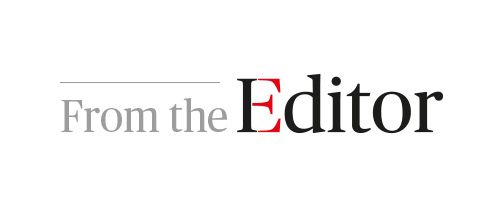Unfortunately, Mr. Modi has presided over the most significant assault on democracy, civil society, and minority rights in India in the past four decades. A sharp-edged ideology of Hindu nationalism has aided this assault.
NEW YORK: Visiting Indian Prime Minister Narendra Modi was warmly welcomed at the White House on Thursday as part of a concerted effort to reaffirm the deep and close partnership between the United States and India. The anticipation surrounding this event had been building for months, with prominent figures like Bill Gates and Commerce Secretary Gina Raimondo showering India with glowing appraisals.
However, the American people must be informed about India under Mr. Modi’s leadership.
Unfortunately, Mr. Modi has presided over the most significant assault on democracy, civil society, and minority rights in India in the past four decades. A sharp-edged ideology of Hindu nationalism has aided this assault. While some may find solace in the wealth and national pride he has brought, his authoritarian tendencies and repression of various groups should raise concerns for all.
India’s claim of being a free democratic country has been shattered since Mr. Modi assumed office in 2014. In the 2023 World Press Freedom Index, India ranks a dismal 161st out of 180 countries, only three spots ahead of Russia. Academic Freedom has reached a record low, as indicated by the Academic Freedom Index, and the Freedom in the World ranking has shown a gradual erosion of political and civil liberties for Indian citizens. The Economist Intelligence Unit’s Democracy Index now classifies India as one of the world’s “flawed democracies.”
The Indian government dismisses these measurements as “perception-based” and meaningless. However, it is not a matter of perception when the government consistently harasses its critics by raiding think tanks, and media organizations, curbing Freedom of movement, and initiating nuisance lawsuits. Notably, opposition leader Rahul Gandhi was recently expelled from Parliament on a ludicrous charge of defaming anyone named “Modi.”
Removing Muslim history from national textbooks, renaming towns named after Islamic figures, and undermining the autonomy of Jammu and Kashmir, India’s only Muslim-majority state, are not mere matters of perception.
Western commentators enthusiastic about the “new India” ignore these atrocities, focusing instead on the country’s economic progress and investment opportunities. However, there are troubling signs on this front as well.
Since Mr. Modi came to power, the percentage of women in the official labor force has declined to around 20%. Crony capitalism has allowed the top 1 percent to control 40.5% of the nation’s wealth. The cost of necessities like food and rent is rising, while government spending on healthcare remains stagnant.
The Biden administration had high hopes of India joining the fight against climate change. Still, the Indian government has instead cracked down on climate activists and even removed topics like evolution and the periodic table from the curriculum for students under 16.
While diplomats may argue that inviting Mr. Modi is not a celebration of him or his government but rather an opportunity to forge connections between two nations and their people during a critical geopolitical moment, we must not deceive ourselves. Mr. Modi has positioned himself as the face of India, appearing on billboards at every street corner, bus stop, and countless websites, wearing a friendly grin. His upcoming reelection campaign will heavily feature photo sessions with prominent figures in Washington. However, the chances of Mr. Modi providing the strategic or economic collaboration that Washington seeks are slim.
Recognizing that Mr. Modi’s vision of India is as distorted as Donald Trump’s vision of the United States is the first step toward developing more effective strategies for engaging with India. As the Indian government spreads propaganda and disinformation, from human rights violations to Covid death rates, U.S. media outlets and academic institutions must uphold critical fact-finding and reporting. Companies conducting business in India should require their partners to adhere to non-discriminatory principles and policies.
Silicon Valley, in particular, should be more committed to countering India’s increasingly dictatorial digital policies, avoiding instances like Twitter’s failure to resist censorship requests, as witnessed in the case of a B.B.C. documentary critical of Mr. Modi.
To avoid repeating the recent mistake made by the Illinois General Assembly, which established an Indian American Advisory Council using terminology that explicitly excluded Muslims, U.S. politicians should pass legislation to protect caste as a marginalized group and equip themselves with the necessary knowledge to prevent a recurrence of such missteps.
Drawing parallels between the rise of fascism in Europe and the erosion of democracy in the United States in recent years is customary. However, India’s experience offers an alarming glimpse into how authoritarianism can undermine a multiethnic democracy in the information age.
There are striking parallels, including an out-of-touch elite, growing economic inequality, easily mobilized ethnic grievances, and a transformed information landscape. The current state of the judiciary, which Mr. Modi has been trying to undermine, is particularly disheartening.
Like the United States, India is a pluralistic democracy with remarkable diversity and tremendous potential. In theory, there is much that can bring these two countries together for the greater good. However, it is crucial to understand that Mr. Modi’s India is a distorted reflection, just as Donald Trump’s United States was. Recognizing this fact is the first step toward formulating more effective strategies for engaging with India.
—



